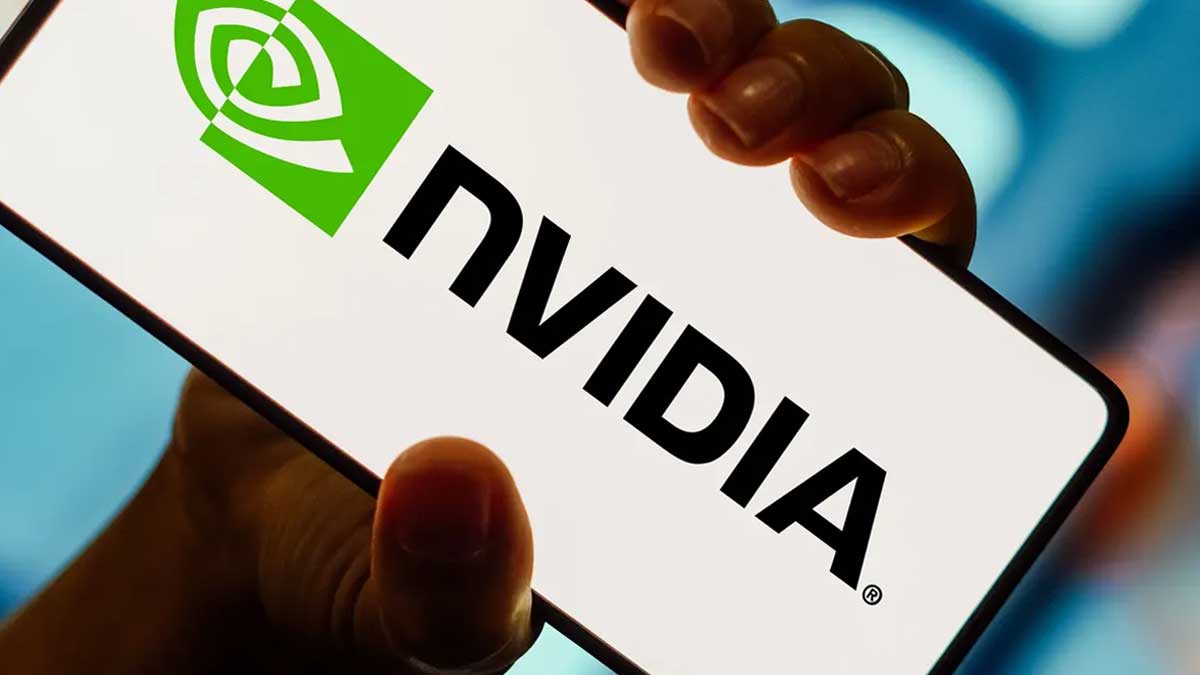- Home
- Billionaires
- Investing Newsletters
- 193CC 1000
- Article Layout 2
- Article Layout 3
- Article Layout 4
- Article Layout 5
- Article Layout 6
- Article Layout 7
- Article Layout 8
- Article Layout 9
- Article Layout 10
- Article Layout 11
- Article Layout 12
- Article Layout 13
- Article Layout 14
- Article Sidebar
- Post Format
- pages
- Archive Layouts
- Post Gallery
- Post Video Background
- Post Review
- Sponsored Post
- Leadership
- Business
- Money
- Small Business
- Innovation
- Shop
Recent Posts
Bank Of America : Nvidia Stock a Solid Pick After Recent Decline

Nvidia’s stock has taken a significant 15% hit, prompting analysts at Bank of America (BofA) to highlight an opportunity for investors. The drop, which occurred following the company’s post-earnings report, is seen as a prime moment for those looking to invest in the artificial intelligence (AI) giant. Despite this rare period of difficulty for Nvidia, the BofA team remains confident in the company’s long-term potential and continues to maintain a bullish outlook.
The team, led by Vivek Arya, has reaffirmed its top rating for Nvidia, with a price target of $165 per share. The recent drop in Nvidia’s stock price, in the view of Bank of America, offers an attractive entry point for potential investors. Arya acknowledged that Nvidia, known for its AI semiconductor technology, is facing some challenges, but emphasized that the company’s fundamentals remain strong.
Among the issues weighing on Nvidia’s stock is a delay in the launch of its next-generation Blackwell graphics processing unit (GPU), which is crucial for generative AI. This delay has caused concern among investors who were looking forward to capitalizing on the booming AI market. Additionally, a weak buyers market, exacerbated by macroeconomic uncertainties such as the upcoming U.S. presidential election, has led to some wariness among investors about tech stocks, including Nvidia.
Adding to the company’s challenges are regulatory concerns. On Tuesday, Bloomberg reported that the U.S. Department of Justice (DOJ) had subpoenaed Nvidia as part of an antitrust investigation. Although Nvidia later clarified that it had not received a subpoena, the mere mention of regulatory scrutiny is enough to cause concern for some investors. Regulatory actions against major tech companies have been increasing, and Nvidia, given its dominant position in the AI space, is seen as a potential target.
Despite these concerns, Bank of America remains optimistic. The analysts argue that the DOJ investigation is unlikely to have any significant material impact on Nvidia. They also note that increased government scrutiny of tech companies is a common occurrence in the current regulatory climate, and Nvidia is well-positioned to navigate any potential challenges.
In response to the selloff, Nvidia’s stock rallied 2% during Thursday’s trading session, but it remains 14% below its closing price from the previous week, ahead of the company’s second-quarter earnings report. Even so, BofA remains confident in its $165 price target, which would imply a massive $4 trillion valuation for the company, larger than any public company in history. Apple, which briefly held the record at nearly $3.6 trillion, is currently the most valuable company, but Nvidia could soon surpass this milestone.
Nvidia’s meteoric rise over the past two years has been extraordinary. As recently as 2022, the company was valued at less than $300 billion. Its dominance in AI, particularly its role in designing the chips that power applications like OpenAI’s ChatGPT, has fueled its rapid growth. Nvidia has also benefited from exceptionally high profit margins, with its gross margin in the latest quarter reaching 75%, up from 43% in the same quarter the previous year. The company’s sales have surged from $7 billion to $35 billion during that period, a remarkable achievement that has solidified its position as the leader in the AI market.
While Nvidia’s growth story is impressive, some investors remain cautious due to the company’s high valuation. Nvidia’s price-to-sales ratio is the highest among all companies in the S&P 500, standing at 25. This means the company’s market value is 25 times its revenue over the past year, compared to the median price-to-sales ratio of 2.8 for companies in the index. Such a high ratio can be off-putting for more conservative investors, but Nvidia’s supporters argue that the company’s projected revenue growth justifies its lofty valuation.
Analysts expect Nvidia to generate $125 billion in sales this fiscal year, representing a more than 1,000% increase compared to its revenue five years ago. For investors who believe in Nvidia’s long-term growth potential, the company’s high valuation appears justified. Despite the challenges and concerns, Nvidia’s dominant position in AI, its robust financials, and the strong demand for its products make it an attractive investment for those willing to weather short-term volatility.
Nvidia’s recent struggles in the stock market are unlikely to dampen its long-term prospects. With Bank of America’s continued support and a $165 price target, the company remains one of the most valuable and influential players in the tech industry. Investors who are able to look beyond the current turbulence may find that Nvidia offers substantial growth opportunities in the years to come.
Recent Posts
Categories
- 193cc Digital Assets2
- 5G1
- Aerospace & Defense45
- AI33
- Arts3
- Banking & Insurance11
- Big Data3
- Billionaires308
- Boats & Planes1
- Business315
- Careers13
- Cars & Bikes74
- CEO Network1
- CFO Network17
- CHRO Network1
- CIO Network1
- Cloud10
- CMO Network18
- Commercial Real Estate7
- Consultant1
- Consumer Tech171
- CxO1
- Cybersecurity59
- Dining1
- Diversity, Equity & Inclusion4
- Education7
- Energy8
- Enterprise Tech29
- Events11
- Fintech1
- Food & Drink2
- Franchises1
- Freelance1
- Future Of Work2
- Games141
- GIG1
- Healthcare77
- Hollywood & Entertainment175
- Houses1
- Innovation41
- Investing2
- Investing Newsletters4
- Leadership65
- Lifestyle11
- Manufacturing1
- Markets20
- Media189
- Mobile phone1
- Money13
- Personal Finance2
- Policy554
- Real Estate1
- Research6
- Retail1
- Retirement1
- Small Business1
- SportsMoney30
- Style & Beauty1
- Success Income1
- Taxes2
- Travel10
- Uncategorized8
- Vices1
- Watches & Jewelry2
- world's billionaires278
Related Articles
Adani Denies $250M Bribery Allegations, Vows Legal Fight
Indian billionaire Gautam Adani addressed the recent allegations brought forth by U.S....
By 193cc Agency CouncilNovember 30, 2024Why NotebookLM Will Revolutionize Small Businesses
Last year, I wrote that Google’s NotebookLM was “definitely not open for...
By 193cc Agency CouncilNovember 30, 2024Dell and HP Shares Drop 12% on Weak Forecasts
Shares of personal computer giants Dell Technologies and HP Inc. dropped sharply...
By 193cc Agency CouncilNovember 28, 2024Hyundai Recalls 226,000 Vehicles for Camera Defect
Hyundai has announced its fourth vehicle recall in November, affecting over 226,000...
By 193cc Agency CouncilNovember 27, 2024















Leave a comment